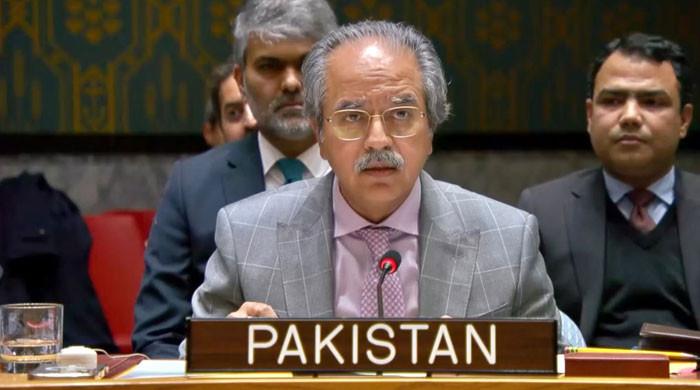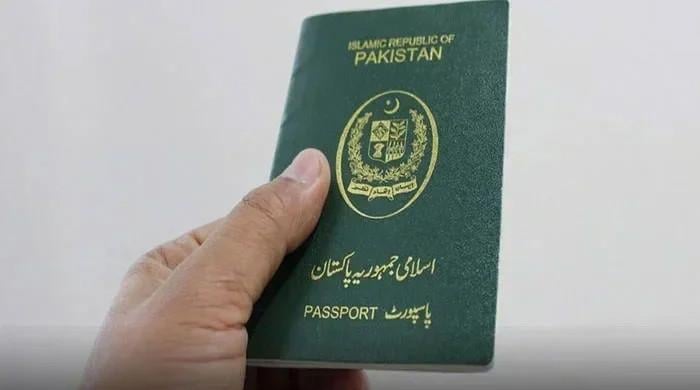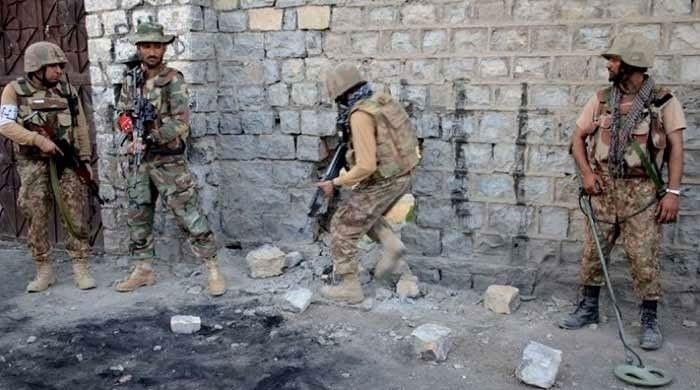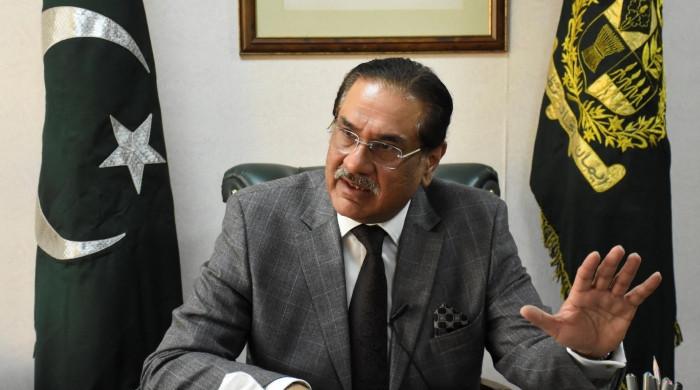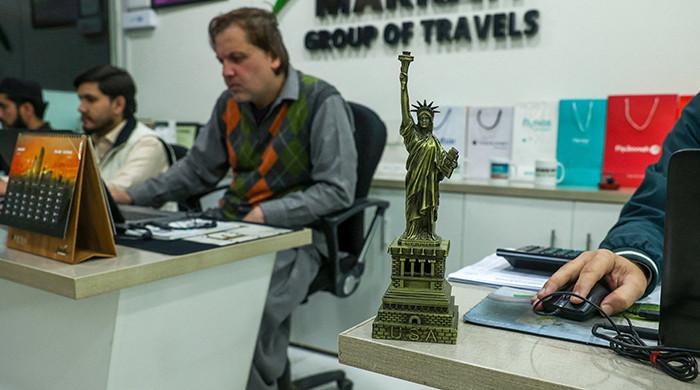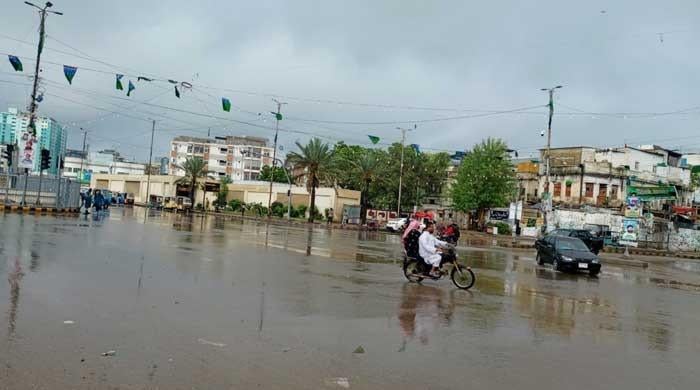18th Amendment, NFC Award should be discussed with an open heart: Asad Umar
Umar says some gaps have surfaced relating to coordination among the Centre and provinces over the post 18th Amendment scenario
July 13, 2020
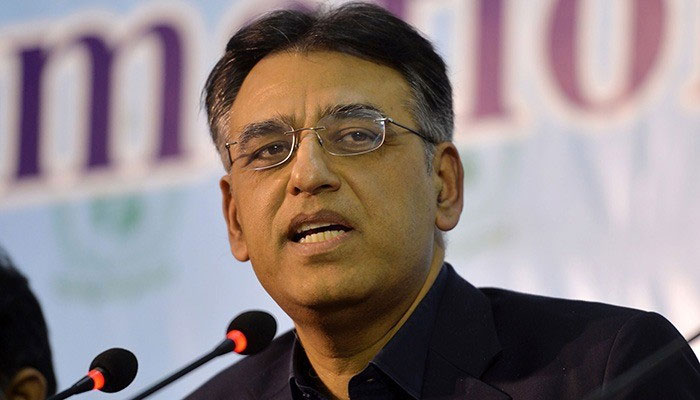
ISLAMABAD: Federal Minister for Planning and Special Initiatives Asad Umar has said the 18th Amendment and the NFC Award should be reflective of each other and that both need to be discussed at a national level with an open heart.
Umar, in an exclusive interview with The News, said some gaps have surfaced relating to coordination among the Centre and provinces over the post 18th Amendment scenario so bringing changes in it must be discussed with an open heart.
“The 18th Amendment and NFC Award should be reflective of each other as responsibilities should be assigned in accordance with the share of resources. Both the 18th Amendment and NFC Award should be discussed at the national level with open heart,” Umar told The News.
The minister said that the gaps existed in coordination and it was realised after the NCOC meetings. “If there is no proper coordination about exact health facilities then how can we come up with a plan to tackle the coronavirus pandemic?” Umar questioned.
When asked about the minus-one formula, the minister said that he did not know from where this has come. “How can you oust Imran Khan under any such formula when 99% of the vote bank of the PTI belongs to him,” he questioned?
The minister said he had been listening to the minus-one debate for the last 12 years when Asif Ali Zardari was the president under the PPP regime. “The phenomena continued when Nawaz Sharif came into power and now Imran Khan has come to power and the same mantra is continuing,” he said.
Umar said that there was a need to telecast debates on Geo and other TV channels by candidates during the US primary election campaign then people of Pakistan would know how they call and treated each other. “The same is done in UK during their election campaign,” he said. The minister said that in Pakistan the Parliament was functioning so there was nothing to worry about.
'Storm in a teacup'
Responding to a query that why the PTI ministers brought out differences publicly, the minister said everyone knew about the relations between Shehbaz [Sharif] and [Chaudhry] Nisar and Nisar with other ministers of PML-N, but they did not oppose each other publicly.
“PTI is a democratic party where everyone talks about from core of his heart. All this is like storm in a teacup, otherwise, our governance is much better than the PML-N,” he claimed.
When asked him to mention standalone reforms introduced by the PTI during its rule, he mentioned that Pakistan Post Office improved a lot and ports operations have been streamlined. He said that it was the first time in the country’s history that three mega hydel power projects including Dasu, Mohmand and Diamer-Bhasha dams were under construction. He said the government cleared the procurement of land with over Rs100 billion and now this dam would be completed by 2027.
In response to another question regarding the lingering dispute between Gilgit-Baltistan and KP government on a land dispute where the power generation of Bhasha Dam would be carried out so the determination of land would finalise royalty rights, the minister said that he was heading the committee and had done his homework. However, he said, there would be elections due in GB and when their new government would come into power then the decision would be made on this issue.
No restructuring in Planning Commission, says Umar
When asked about restructuring plan into the Planning Commission, the minister said that there was no restructuring plan under consideration, but the efforts were underway to build up a good talented team.
The minister said Prime Minister Imran Khan wanted to transform the Planning Commission on the model of 60s when it was working under Mehboobul Haq. After getting frequent programmes of IMF, he said that the Ministry of Finance assumed the driving seat in the policymaking under the IMF programme. “Now the Planning Ministry would be strengthened by developing a good team,” he added.
The PTI lawmaker further said the government has decided to hire a chief economist for the Planning Commission and chief statistician for the Pakistan Bureau of Statistics (PBS) into special pay scale (SPS). It is relevant to mention here that these two key posts had fallen vacant for several years and could not be filled in the last two years of the PTI government.
When asked how the cash bleeding power sector would be fixed, Umar said it could be done without placing a market-based mechanism since the power sector problems could not be fixed in haste. He said the best professionals would have to be hired at Gencos and Discos levels in order to bring efficiency.
Umar defends 'smart lockdown' decision
In response to another query regarding restoration of full-fledged economic activities in a post-COVID-19 pandemic situation, he said, “It would be hard to predict, but it was the best strategy placed by the government of Pakistan as the countries that adopted the approach of an extreme lockdown or those that eased down completely, both faced problems, however, Pakistan pursued smart lockdown that went very well,” the minister said.
Umar added that it was a conscious decision of the government to open up exports sector first of all because the government knew that the country could not afford a steep fall in its export earnings.
The minister said that they were analysing the IMF forecast recently and the Fund changed its forecast about Pakistan from negative to positive 1% for the current fiscal year. He said it all happened due to the policy of moving ahead with the smart lockdown.
Umar further said Pakistan would not get any relief in the Net Present Value (NPV) on account of debt relief from the international community because these loans payments were deferred for a certain timeframe but not waived off. “Pakistan will have to stand up on his own feet to revive its economy because this pandemic has hit everyone,” he noted.
The minister also said that despite the COVID-19 pandemic, the Planning Ministry utilised over 80% development funding that demonstrated that the utilisation remained more than last six years.
Originally published in The News




